Indo-French Couple’s Kayaking Venture Brings Sustainable, Eco-Tourism to Goa
Pascal and Poonam Ribo left their homes to settle in Goa and change the hedonistic tourism scene with eco-tourism through their decade-old venture, Konkan Explorers.
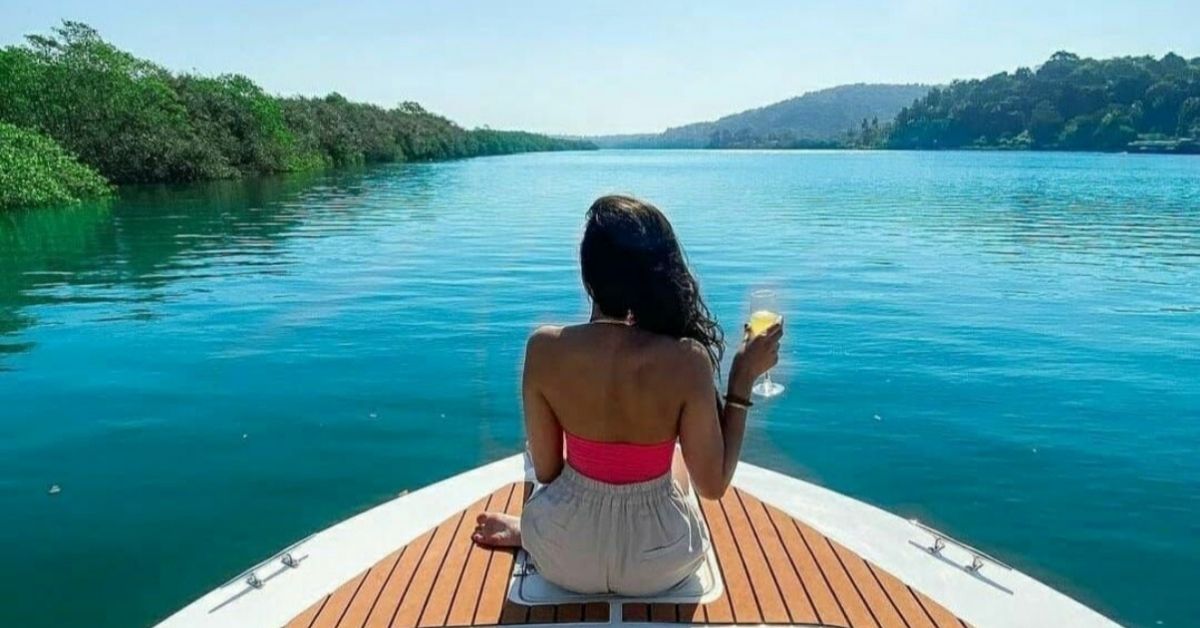
Growing up in the port city of Marseille, South of France, Pascal Ribo was an enthusiastic sailor. He and his family would often take off on sailing escapades, which is what fueled his love for the waters.
But it would be many years before he met the love of his life, Poonam Ribo, to create a unique, conservationist initiative of their own in the backwaters of Goa.
“I grew up in Kolkata, which is where I met Pascal,” begins 41-year-old Poonam.
An anthropologist by profession, Pascal was doing his fieldwork in Bengal. He says, “I worked on the way different populations of India (especially in Bengal) built their relationship with the natural environment. For instance, it helped me to understand some of the reasons behind the noticeable lack of involvement in sea-related knowledge, activities and infrastructures.”
On the other hand, Poonam pursued a career in theatre acting and modelling for over eight years in Mumbai.
“We met through a common friend in 1998. He was my friend for the longest time. We used to travel to Kolkata [from Mumbai] together, and that’s how our friendship grew. We then got married in 2008 and moved to Goa in 2009,” says Poonam.
The decision to move to Goa, Poonam says, was to set up something to do with water. “But Goa was always known as a ‘party destination’, and there would be a lot of competition in water sports, we thought,” she adds.
“We ended up touring South India and finally settled on Goa, and it was so different from its touristic image. We saw the villagers, coastlines and unexplored aspects that we wanted to open up to others,” says Poonam, adding they wanted to reconnect people with nature.
Thus was born Konkan Explorers that offers responsible and eco-friendly nautical sports.
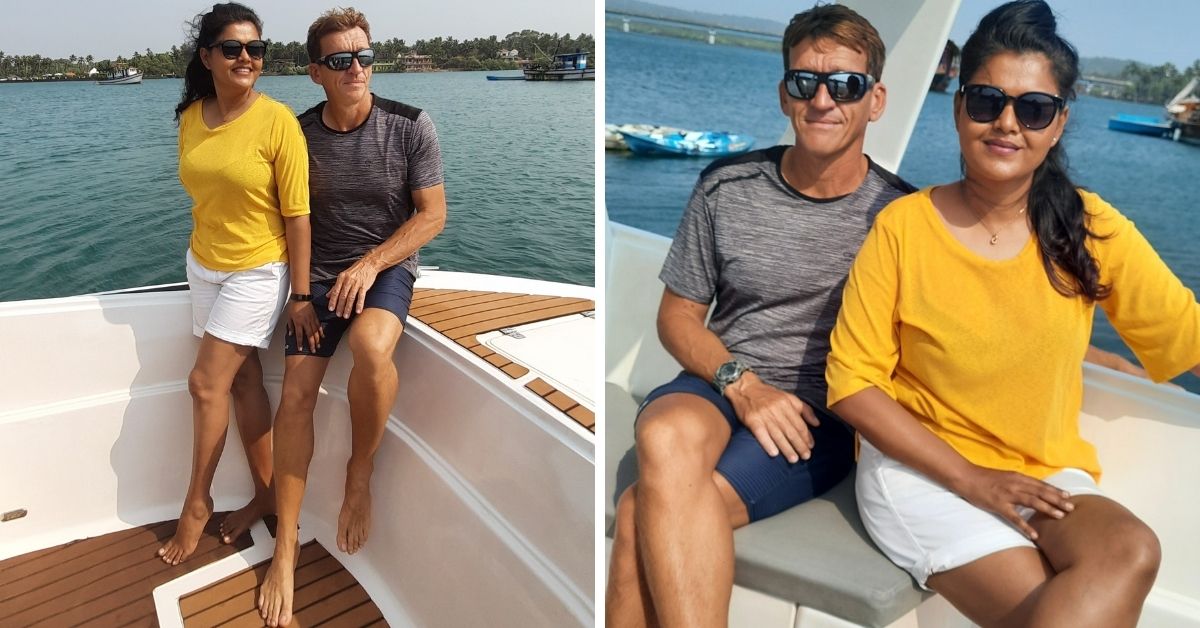
“For three years, we did our exploration on the Chapora river and the Morjim part of the sea, as there were no facilities to learn the intricacies like — Where is the shallow water or deeper water? Where are the rocks? So we had to create our own learning experiences,” she says.
Their eco-friendly travel venture was launched in 2012 as an answer to Goa’s hedonistic tourism culture.
An Education In Eco-Friendly Tourism
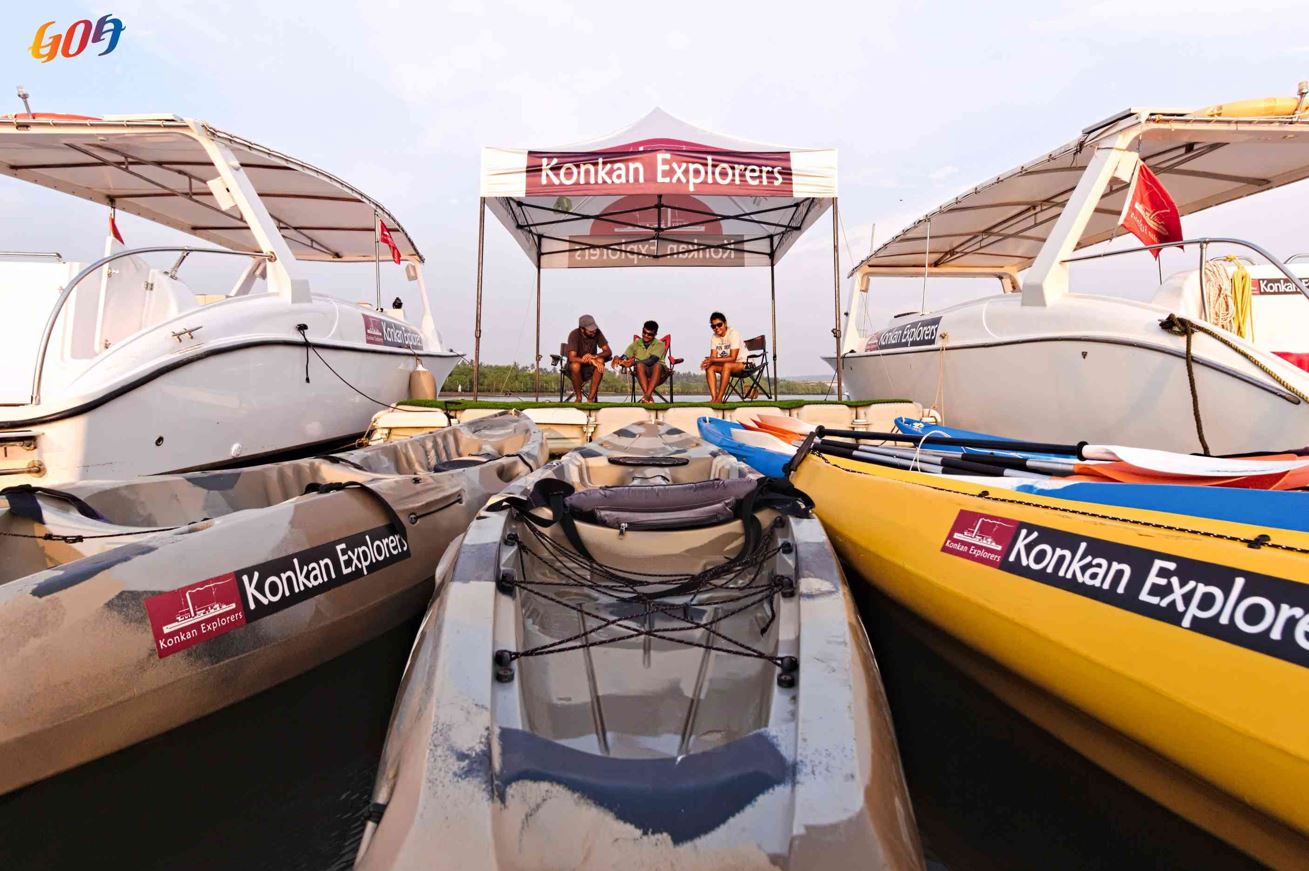
“I didn’t know anything about the waters, but Pascal taught me everything from swimming to basics of navigation, yachts, boats, tying knots, studying the weather and tides, etc.,” says the former actor.
So, for the past decade, Konkan Explorers has offered eco-friendly nautical activities. “We avoid the use of engines. Although, having said that, our main yacht does have engines, but it is mainly to carry the kayaks,” she says.
Her husband adds, “We chose two engines of 40 HP per vessel instead of the 300 HP. This is because small engines drink much less [fuel], pollute much less, cost less, and so, customers pay less.”
“Additionally, we were the first boat in Goa using solar energy (500 watts),” claims Pascal. “We don’t use generators. We have a marine toilet with a macerator and operative black water systems, and we are careful about the eco-friendly aspects of the paint and antifouling used for maintenance.”
Using the power of tides for travelling up or down the rivers, they use the energy generated from the solar panels to run navigation equipment and power the marine toilet. “With 3 knots of tide pushing, we switch on only one engine at reduced power for getting the three more knots of the river speed limit,” Pascal asserts.
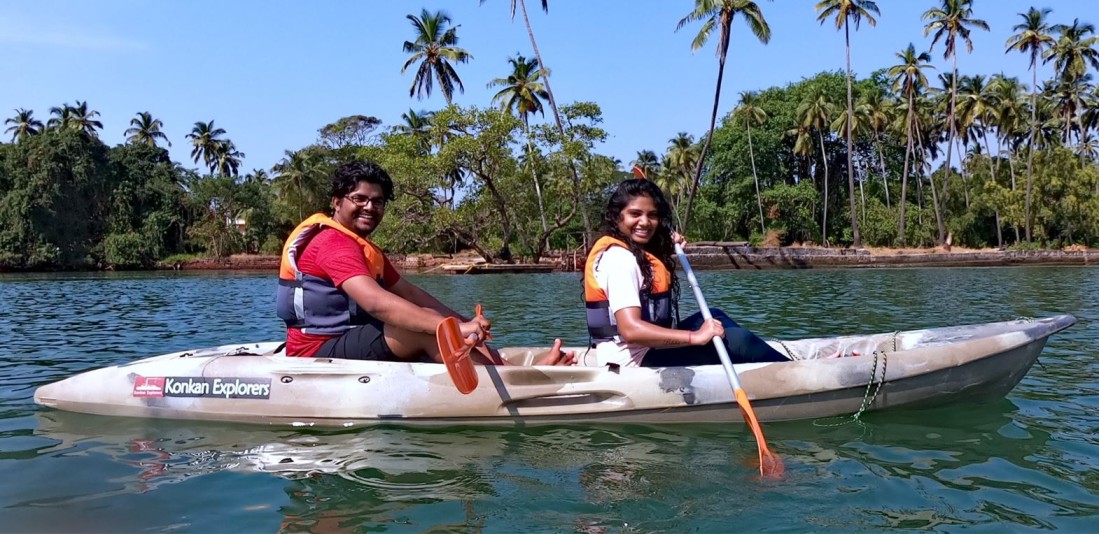
In terms of guest policies, Konkan Explorers is mindful not to disrupt the local ecology. “If a group of passengers is not presenting the proper attitude, we strictly bypass eco-sensitive zones and activities like mangroves,” he adds.
In addition to cruising quiet rivers and learning about mangrove swamps, the Indo-French couple organises clean-up drives of mangroves, sandbars and rivers.
“While we are making our way through the mangroves on our kayaks and see plastic waste, we pick it up and welcome our guests to do the same,” says Poonam, adding, “We also organise regular clean-up drives, where we offer a group of around 30 volunteers free cruises to small islands and mini mangroves.”
Their clean-up drives mainly take place along their route of the Chapora River, its mangroves, the Eagle islands and the Morjim estuaries. Before the pandemic, they also organised educational trips free of cost for local school children.
Propelling Eco-Tourism
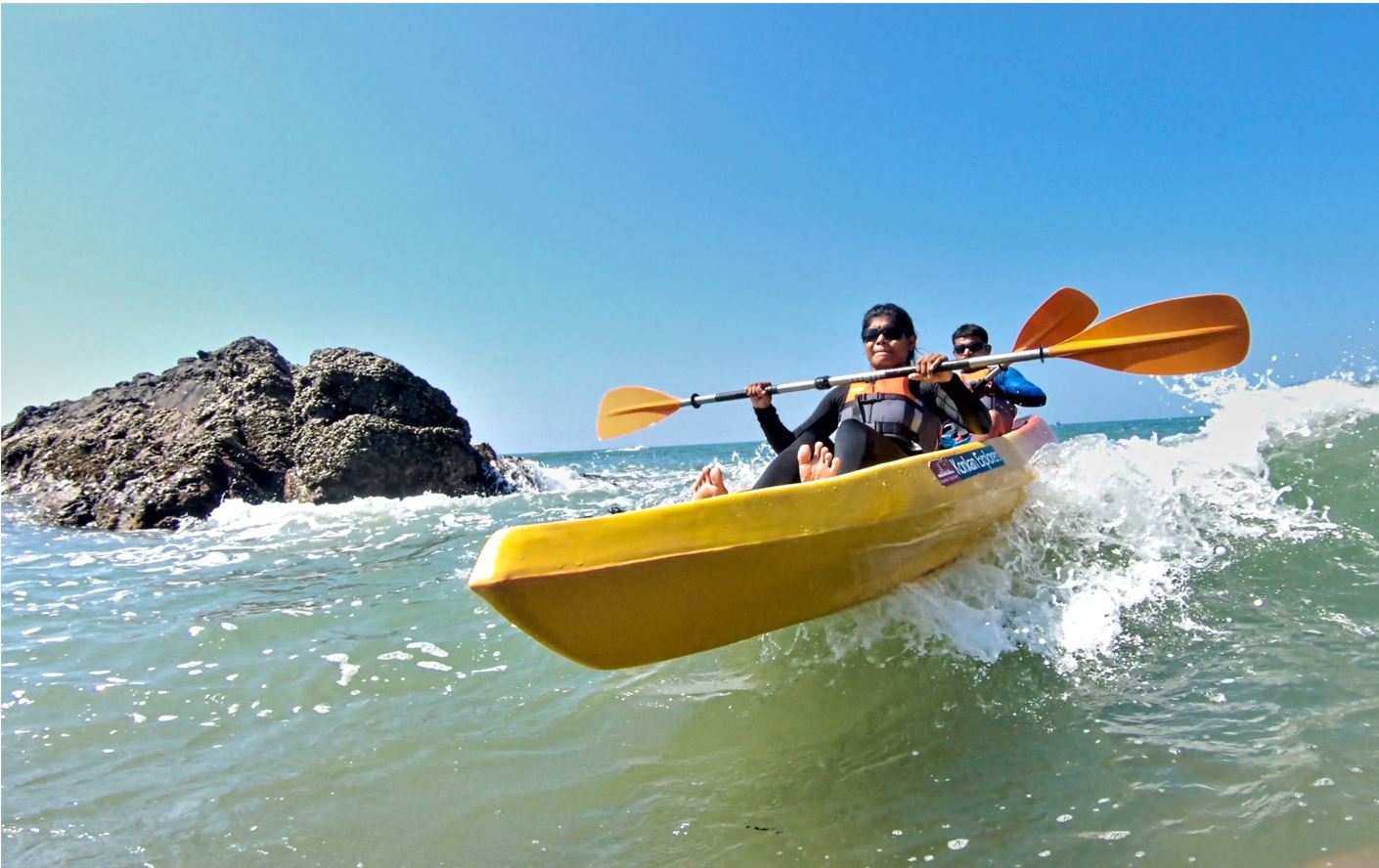
One of the most common questions Pascal and Poonam were asked by locals when they first purchased a sailing boat was, “Can you not afford to buy a motorised boat?”
Since then, there has been a paradigm shift in the way Goans and the State’s tourists view tourism. “We have had the same growth, approximately 30 per cent year-on-year, and the pandemic has not affected the urge to experience the outdoors,” says Poonam.
Their initial investment for the boat was Rs 60 lakh, which was doubled with the purchase of their second boat.
But their primary challenge, Poonam says, was to find skilled labour to operate their boats. So, the duo started a paid internship scheme. So far, they’ve trained around 30 individuals from various fields like farmers, teachers, fishers, and advocates from different parts of the country like Goa, Maharashtra, Uttar Pradesh, West Bengal, Assam and Kerala.
The prices for their nautical activities start from Rs 1,000 and go up to Rs 4,500 – depending on the number of hours spent in the water and the package. For example, a one-hour ‘Introduction to kayaking’ package attracts a basic price. In contrast, a four-hour cruise on their main yacht along with water activities like diving, swimming, kayaking and stand-up paddling, inclusive of snacks, drinks and taxes, is their most expensive package.
And for all their efforts in responsible tourism, the venture had won the Indian Responsible Tourism award for Best Outdoor Operator in 2018. “I am convinced we are in a phase where the educated convey a new demand that is based on a more responsible manner of behaving,” says Pascal.
Poonam reiterates, “Tourism shouldn’t come at the expense of the destruction of nature. These mangroves have been growing for the past decade, and we want to reiterate that you can still enjoy nature without a negative impact.”
“We are working with the government and the Goa Tourism board to develop and conceptualise nautical tourism in the State over the next decade,” she concludes.
(Edited by Vinayak Hegde)
If you found our stories insightful, informative, or even just enjoyable, we invite you to consider making a voluntary payment to support the work we do at The Better India. Your contribution helps us continue producing quality content that educates, inspires, and drives positive change.
Choose one of the payment options below for your contribution-
By paying for the stories you value, you directly contribute to sustaining our efforts focused on making a difference in the world. Together, let’s ensure that impactful stories continue to be told and shared, enriching lives and communities alike.
Thank you for your support. Here are some frequently asked questions you might find helpful to know why you are contributing?


This story made me
-
97
-
121
-
89
-
167











